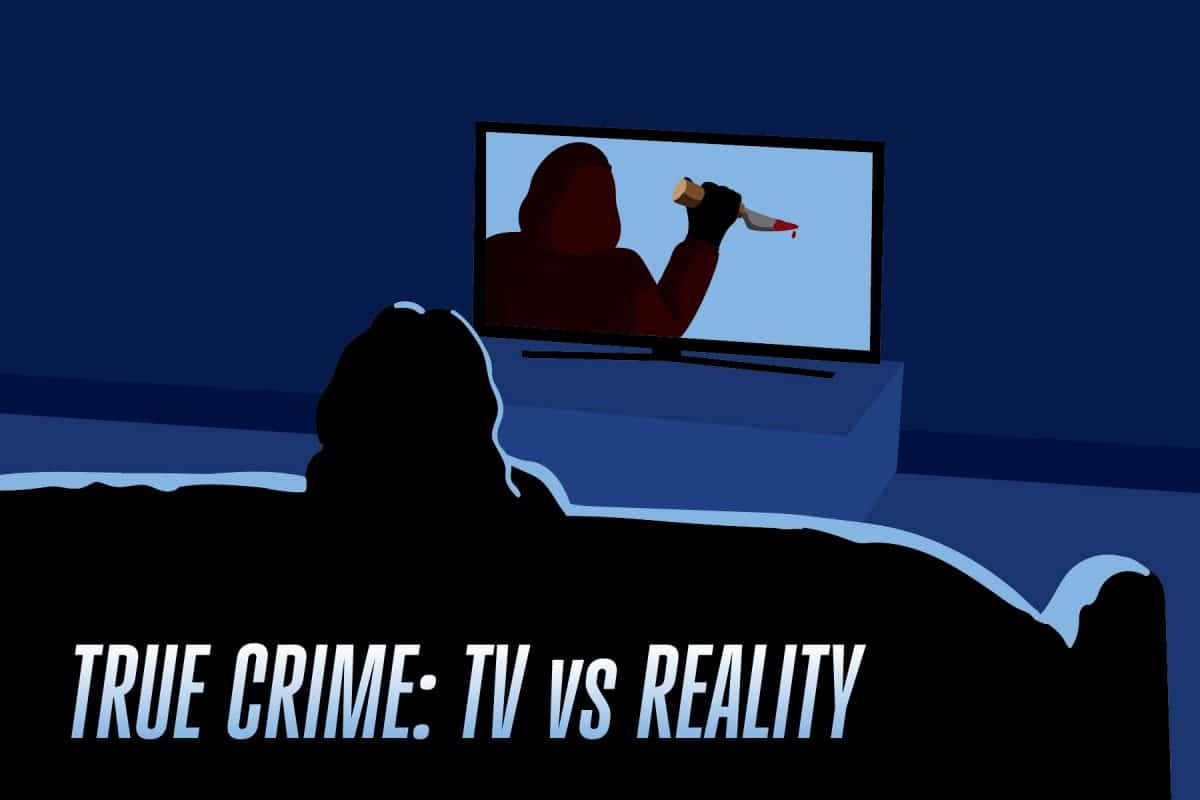Criminal justice shows have led to an increase of young adults wanting to become detectives, attorneys, scientists, crime profilers and other positions in the field. But these professions are not what they appear to be on television.
Douglas Klutz, advising and internship director and professor of criminology and criminal justice, said most students are surprised after their first class.
“Students have watched their favorite criminal justice-related programming, whether it be a TV show or podcast or whatever documentary, and they basically believe everything, even though it’s completely fictional,” Klutz said.
Grant Kaufmann, a sophomore majoring in criminal justice, said the biggest shock to him was realizing that it involved more math and paperwork than what he knew.
“I think in today’s age we really like true crime TV shows and movies, and with the Dahmer television show that came out, people go into criminal justice just thinking it’s going to be just detective work, or it’s just going to be drama, when that’s really not the reality,” Kaufmann said.
Rachel Gibbs, a senior majoring in criminal justice, said she had to relearn what she knew from the shows.
Myths about the profession are often the cause of interest in younger adults, but professors at The University of Alabama aim to break these beliefs.
“There are a lot of shows on TV about this world — or are supposed to be about this world — of forensic science and crime scene investigations, but most of them are fictional,” Klutz said. He said the whole field has been led to a very distorted view.
Klutz said the term “CSI effect” has been used to describe people who think that there are many forensic testing techniques that don’t exist due to fictionalized plots on true crime shows.
Other true crime shows have also impacted students entering the field.
“My favorite TV show was ‘Criminal Minds.’ I watched that every single day. I know every episode, every line, and that’s what helped make me so excited to want to go to criminal justice,” Gibbs said.
Criminal profiling, a position in TV shows in which the character identifies a suspect by using crime scenes and other evidence, is a popular profession within true crime shows like “Criminal Minds.” However, it is a myth.
“Despite some popular depictions, these FBI special agents do not get ‘vibes’ or experience ‘psychic flashes’ while walking around fresh crime scenes. In reality, it’s an exciting world of investigation and research,” according to the Federal Bureau of Investigation’s frequently asked questions.
“Sherlock Holmes” has also generated interest in becoming a detective. Despite what many people believe, detectives don’t solve all the crimes. Klutz said that in most cases, it’s the first responder.
“It’s interesting. The person that gets no glamor or glory in the TV shows in reality is responsible for solving the vast majority of cases,” Klutz said.
Another myth, which Klutz describes as the “Law and order” effect, refers to the phenomenon of students wanting to get into the legal field due to how they see courts displayed on TV.
“It’s not going to be chasing after suspects or taking fingerprints or getting DNA analyzed or kind of like a ‘Sherlock Holmes’ moment where you’re piecing it together on a board, with string attached to the pictures, as they have in the movies and TV shows. It’s going to be a lot of paperwork and probably a lot of numbers,” Kaufmann said.
Klutz has warned his students that they likely won’t encounter the kinds of cases they see on TV during an actual legal career.
“Most of the stuff on TV about our criminal justice system, even if it is following around those real life individuals, is going to be heavily edited,” Klutz said. “But a lot of people get their perception of how our criminal justice system works based on these fictional TV shows.”
Some students, even though disappointed, have stayed within the major and found interest in other pathways.
“It literally broke my heart, and I didn’t know if I wanted to do this anymore because it looked fun. But I got through it. … I learned to love it,” Gibbs said about the reality of the field.









